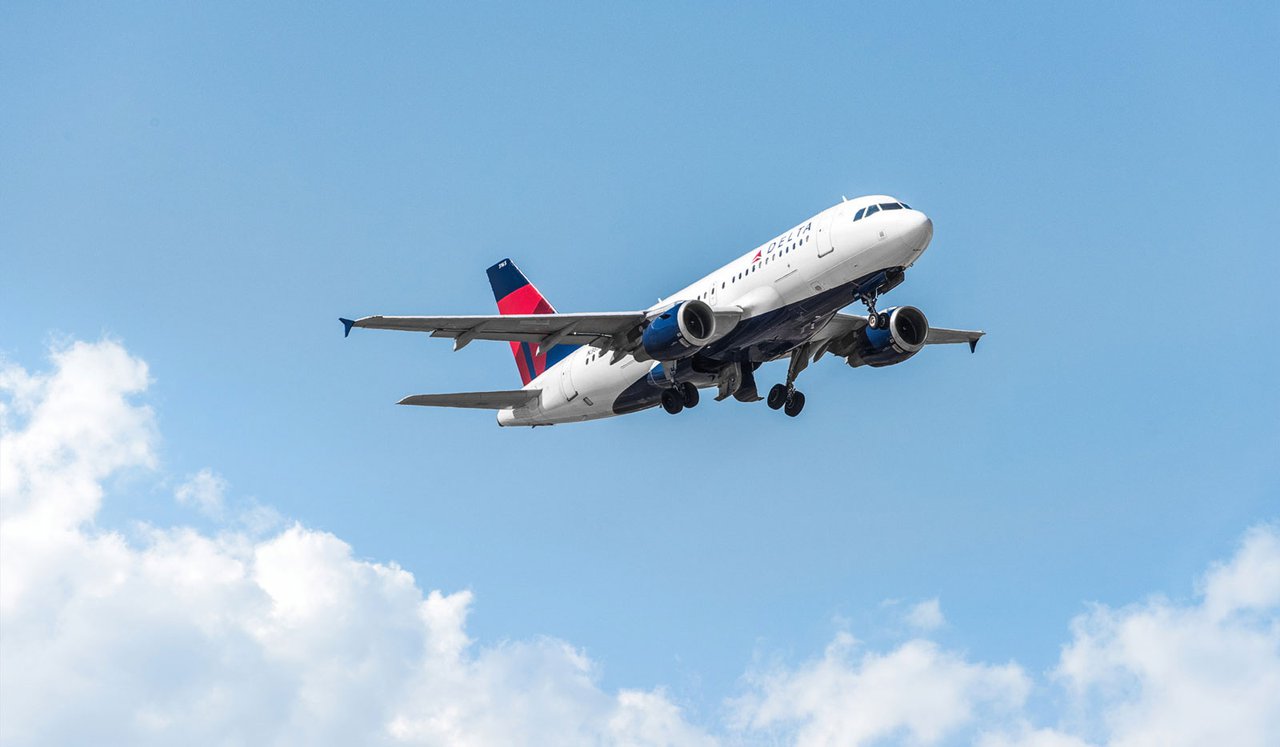

Delta is committed to providing safe and clean transport for customers and a safe workplace for employees.
At Delta, we realize the opportunity to leverage our brand’s trust to drive good vendor practices, touching every aspect of our business.
Delta’s mission to connect the world includes our commitment to being a strong partner to the communities where our employees live, work and serve
Delta has remained steadfast in our commitment to address climate change
Appendix
Our people are our strongest competitive advantage, and the high-quality service they provide sets us apart.
Delta has implemented a robust governance framework over ESG matters at the board and management levels.
Travel Can Change the World. For Good.
ABOUT
03
ESG Materiality Assessment

NO ONE BETTER CONNECTS
THE WORLD.


At Delta, we seek to transparently communicate through our ESG report how we view, prioritize and approach the ESG topics most relevant to our business, which we determine based on an assessment process involving input from key internal and external stakeholder groups.
We believe regular engagement and dialogue with key stakeholder groups through both formal and informal processes positions us to proactively address emerging ESG opportunities and risks.
One way that we engage with both internal and external stakeholders is through a biennial ESG materiality assessment. We use this input to identify the most relevant, or material, issues from an ESG perspective, which is a different standard than that used in our financial disclosures and distinct from the concept of materiality as defined under rules and regulations of the Securities and Exchange Commission and case law.
For our 2021 ESG materiality assessment, we surveyed ten stakeholder groups and interviewed several representative members to evaluate a variety of ESG topics and their relative importance.
The stakeholder groups included in our 2021 assessment consisted of the following:
- Investors
- Customers
- Employees
- Suppliers
- Community Partners
- Regulators/Policy Makers
- Nongovernmental Organizations
- Partner Airlines/Industry Peers
- Airports and Travel Sites*
- Industry Associations*
Topics included in the assessment were influenced by both current events and stakeholder feedback received since the 2019 assessment and were evaluated based on sustainability reporting frameworks and internal analysis of their relevance to Delta’s business.
The survey asked internal and external stakeholders to rank the importance of each topic relative to the others. These results were aggregated, analyzed and refined through feedback provided during the interviews.
Delta received feedback from more than 1,000 internal and external stakeholders and evaluated 40 ESG topics during the assessment process. The results of the ESG materiality assessment were then presented to, and reviewed by, Delta’s ESG Council.
While many priority topics were similar to those identified in the 2019 assessment, the ranking of topics has evolved. This year, the highest-ranking topics—aircraft fuel efficiency and greenhouse gas (GHG) emissions and climate change management—are environmentally-focused, which represents a change from the 2019 assessment.
Diversity, equity and inclusion (DEI) ranked in the top ten for the first time in this year’s assessment, highlighting its importance based on the ongoing global reckoning over racial injustice and inequality. The highest-ranking topics are catalogued within Delta’s enterprise risk management (ERM) program, discussed in the Delta Risk Council and its supporting working groups and, where appropriate, can be escalated accordingly through our governance structure. This report addresses many of these topics in detail.
*Denotes stakeholder groups included in ESG materiality assessment for the first time.
About this Report
The 2021 ESG Report presents a snapshot of our environmental, social and governance efforts since January 1, 2021, with a focus on the period from January 1, 2021, to December 31, 2021, unless otherwise stated. Delta continually seeks to advance its ESG goals; therefore, progress toward certain initiatives during the first quarter of 2022 has been reflected in this report.
The report is informed by the reporting standards of the Sustainability Accounting Standards Board (SASB), the Task Force on Climate-Related Financial Disclosures (TCFD) and the Global Reporting Initiative (GRI).
This report reflects information regarding Delta’s airline operations, which is our core business. Monroe Energy, a subsidiary that has approximately 500 employees and operates the Trainer Refinery and related pipelines and terminal assets that supply jet fuel to our airline operations in the Northeastern United States, is operated separately and is not reflected in this report, as permitted by the GHG Protocol.
For additional information regarding Monroe Energy, please see our Annual Report on Form 10-K for the year ended December 31, 2021 and our Climate Lobbying Report.









